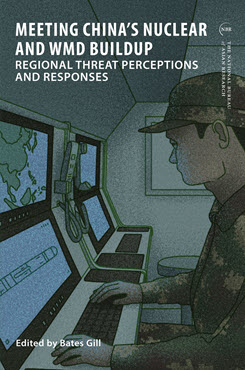Essay in NBR Special Report 109
China’s Nuclear Modernization and Its Implications for Japan
This essay assesses the direct and indirect threats that China’s modernization of its nuclear capabilities pose for Japan, examines how Japan is responding to these threats, and considers the opportunities for further cooperation with the U.S.
EXECUTIVE SUMMARY
MAIN ARGUMENT
MAIN ARGUMENT
Security concerns related to China have been rapidly increasing in Japan. Although China’s growing nuclear capabilities are not said to be directed at Japan, there are indeed concerns within the Japanese community about the potential use of nuclear weapons by China. Moreover, the indirect threats of China’s military buildup have stimulated Japanese policymakers to reconsider and re-evaluate security policies. The most significant shift is the renewal of Japan’s National Security Strategy, National Defense Strategy, and Defense Buildup Program in 2022. At the same time, Japan acknowledges that the alliance with the U.S. remains the cornerstone of its security policy and that it needs to work hand in hand with the U.S. to respond to potential threats posed not only to Japan but also to the broader region. Since 2010 the bilateral Extended Deterrence Dialogue has become an important mechanism not only for reconfirming the U.S. commitment to Japan but also for providing a strong message to China. While extended nuclear deterrence raises domestic issues within Japan that will need to be managed, it is crucial for Japan to utilize existing means, both political and military, to deter China from taking any military actions.
POLICY IMPLICATIONS
- Since the rapid buildup of Chinese military capabilities could change the structure and dynamic of the current deterrent mechanism in East Asia, it has become increasingly important that Japan, together with its allies and like-minded states, work to stabilize the security situation and environment in the region.
- Japan must neither underestimate nor overestimate China’s purpose for its military buildup.
- Japan will need to use its diplomatic channels to work toward maintaining stability in the region, while at the same time working to reinforce its self-defense abilities in order to maintain its deterrent capabilities against China.
- The alliance with the U.S. will continue to be the cornerstone of Japan’s security policy and will remain so for the foreseeable future.
Wakana Mukai is an Associate Professor in the Faculty of International Relations at Asia University in Tokyo.



